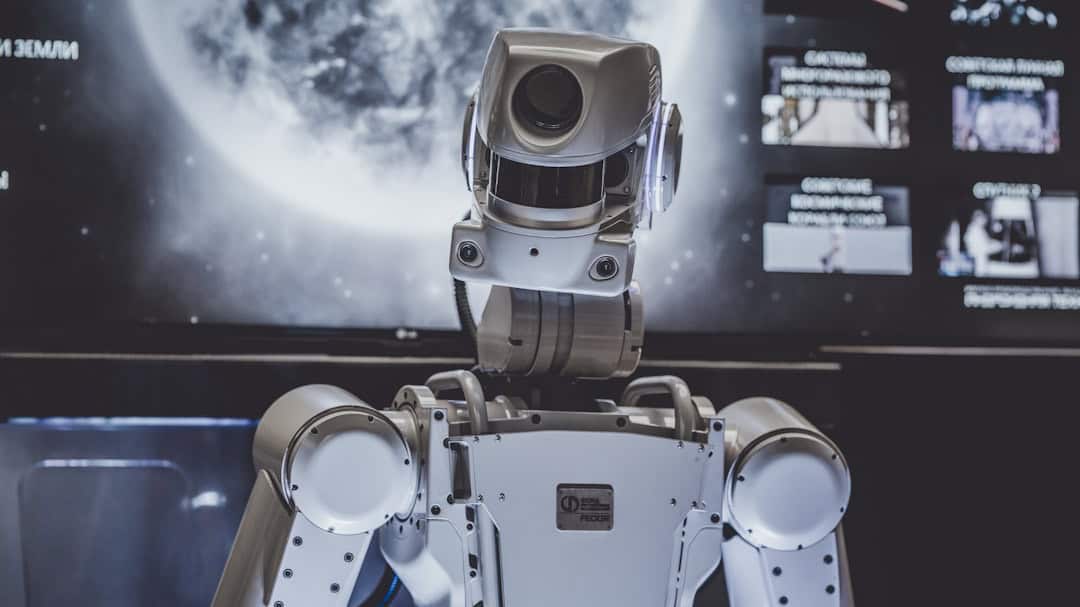Artificial Intelligence (AI) originated in the 1950s when computer scientist John McCarthy coined the term. However, the concept of creating intelligent machines predates this by centuries. Ancient Greek mythology featured stories of mechanical beings, and throughout history, humans have attempted to create machines that mimic human cognition and behavior.
The modern AI era began with the advent of electronic computers in the mid-20th century. Early AI researchers aimed to develop machines capable of human-like thinking and learning. This led to the creation of initial AI programs that could perform tasks such as playing chess and solving mathematical problems.
AI has since evolved to encompass various technologies, including machine learning, natural language processing, and robotics. In contemporary times, AI applications are widespread, ranging from virtual assistants like Siri and Alexa to autonomous vehicles and sophisticated medical diagnostic tools. The field continues to advance rapidly, with ongoing research and development in areas such as deep learning, neural networks, and artificial general intelligence.
Key Takeaways
- Artificial Intelligence (AI) has its origins in the 1950s, with the development of computer programs that could simulate human problem-solving and learning.
- Ethical considerations in AI include issues of privacy, bias, and the potential for job displacement.
- AI plays a crucial role in society, from healthcare and finance to transportation and entertainment.
- The future of AI holds promise for advancements in fields such as medicine, but also raises concerns about job automation and the potential for misuse.
- The relationship between AI and human intelligence is complex, with AI systems capable of performing tasks that were once thought to be uniquely human.
- Philosophical implications of AI include questions about consciousness, free will, and the nature of intelligence itself.
- Potential risks of AI include job displacement and the misuse of AI for malicious purposes, while benefits include improved efficiency and innovation in various industries.
The Ethics of Artificial Intelligence
The Impact on Employment
One of the key ethical issues surrounding AI is the potential impact on employment. As machines become more capable of performing tasks that were once done by humans, there is concern about the displacement of workers and the potential for widespread job loss.
Privacy and Civil Liberties
Additionally, there are ethical concerns about the use of AI in areas such as surveillance and law enforcement, where the technology has the potential to infringe on privacy and civil liberties.
Bias and Accountability
Another ethical consideration is the potential for bias in AI systems. Machine learning algorithms are often trained on large datasets, and if these datasets contain biased or discriminatory information, the AI systems can perpetuate and even amplify these biases. This has raised concerns about the fairness and accountability of AI systems, particularly in areas such as hiring, lending, and criminal justice.
As AI continues to advance, it will be important for researchers, developers, and policymakers to address these ethical considerations and ensure that AI is used in a way that is fair, transparent, and beneficial for society.
The Role of Artificial Intelligence in Society

Artificial Intelligence has already begun to play a significant role in society, and its influence is only expected to grow in the coming years. AI is being used in a wide range of industries, from healthcare and finance to transportation and entertainment. In healthcare, AI is being used to analyze medical images, diagnose diseases, and develop personalized treatment plans.
In finance, AI is being used to detect fraud, automate trading, and provide personalized financial advice. In transportation, AI is being used to develop self-driving cars and optimize traffic flow. AI also has the potential to address some of society’s most pressing challenges.
For example, AI can be used to improve access to education through personalized learning platforms, or to address climate change through more efficient energy management. Additionally, AI has the potential to improve quality of life for individuals with disabilities through technologies such as speech recognition and assistive robotics. As AI continues to advance, it will be important for society to consider how to harness its potential for the greater good while also addressing potential risks and challenges.
The Future of Artificial Intelligence
| Metrics | Data |
|---|---|
| AI Market Size | 191 billion by 2025 (IDC) |
| AI Job Growth | 58 million new jobs by 2022 (World Economic Forum) |
| AI Impact on GDP | up to 26% increase by 2030 (PwC) |
| AI Ethics Concerns | 57% of people are concerned about AI bias (Pew Research Center) |
The future of Artificial Intelligence holds great promise and potential for both positive and negative impacts on society. On one hand, AI has the potential to revolutionize industries, improve efficiency, and enhance quality of life for individuals. For example, AI-powered healthcare technologies could lead to more accurate diagnoses and personalized treatment plans, while AI-powered transportation systems could reduce traffic congestion and improve safety.
Additionally, AI has the potential to create new job opportunities and drive economic growth through innovation and productivity gains. On the other hand, there are concerns about the potential negative impacts of AI on society. For example, there are concerns about the potential for widespread job displacement as machines become more capable of performing tasks that were once done by humans.
Additionally, there are concerns about the potential for bias and discrimination in AI systems, as well as the potential for misuse of AI technologies for surveillance and control. As AI continues to advance, it will be important for society to consider how to harness its potential for positive impact while also addressing potential risks and challenges.
The Relationship between Artificial Intelligence and Human Intelligence
The relationship between Artificial Intelligence (AI) and human intelligence is complex and multifaceted. On one hand, AI has the potential to augment human intelligence by performing tasks that are difficult or impossible for humans to do alone. For example, AI can analyze vast amounts of data at speeds far beyond human capability, or perform complex calculations with precision and accuracy.
Additionally, AI has the potential to enhance human creativity and problem-solving by providing new tools and insights. On the other hand, there are concerns about the potential for AI to surpass human intelligence and autonomy. This has led to discussions about the concept of “superintelligence” – a hypothetical future state in which AI systems surpass human intelligence in all areas.
There are concerns about the potential implications of superintelligence, including the loss of control over AI systems and the potential for unintended consequences. As AI continues to advance, it will be important for society to consider how to ensure that AI systems are aligned with human values and goals.
The Philosophical Implications of Artificial Intelligence

The Nature of Intelligence and Consciousness
One of the primary philosophical debates surrounding AI revolves around whether machines can genuinely be intelligent or conscious in the same manner as humans. This has sparked intense discussions about the nature of consciousness and whether machines can possess subjective experiences.
Moral Implications of AI
Furthermore, AI raises significant philosophical questions about its moral implications. For instance, if machines become capable of making autonomous decisions, there are concerns about how to ensure that these decisions align with human values and ethics.
Impact on Human Identity and Responsibility
AI also raises questions about its potential impact on human identity and relationships, as well as the nature of responsibility and accountability in a world where machines are capable of independent action.
The Potential Risks and Benefits of Artificial Intelligence
Artificial Intelligence (AI) holds great promise for society, but it also comes with potential risks and challenges that must be carefully considered. One of the key benefits of AI is its potential to revolutionize industries and improve quality of life for individuals. For example, AI has the potential to improve healthcare outcomes through more accurate diagnoses and personalized treatment plans, while also driving economic growth through innovation and productivity gains.
However, there are also concerns about the potential risks of AI, including job displacement, bias in AI systems, and misuse of AI technologies for surveillance and control. Additionally, there are concerns about the potential for unintended consequences as AI systems become more autonomous and capable of independent action. As AI continues to advance, it will be important for society to consider how to harness its potential for positive impact while also addressing potential risks and challenges.
In conclusion, Artificial Intelligence (AI) has its origins in the 1950s but has roots dating back much further in history. The ethical considerations surrounding AI include concerns about job displacement, bias in AI systems, and misuse of AI technologies for surveillance and control. The role of AI in society is already significant across various industries such as healthcare, finance, transportation, education, climate change solutions, and disability assistance technologies.
The future of AI holds great promise but also raises concerns about job displacement, bias in AI systems, misuse of technology for surveillance and control. The relationship between AI and human intelligence is complex with potential benefits such as augmenting human intelligence but also concerns about surpassing human intelligence leading to discussions about “superintelligence”. The philosophical implications of AI raise questions about consciousness in machines as well as moral implications such as responsibility and accountability in a world where machines are capable of independent action.
Lastly, while there are great benefits to be gained from AI such as revolutionizing industries and improving quality of life for individuals there are also potential risks such as job displacement, bias in AI systems, misuse of technology for surveillance and control that must be carefully considered as AI continues to advance.
If you’re interested in exploring the philosophical implications of artificial intelligence, you may want to check out the article “Community and Culture in the Metaverse: Diversity and Inclusion in the Metaverse” on Metaversum.it. This article delves into the ways in which AI and virtual reality are shaping our understanding of community and culture, and the ethical considerations that come with it. It’s a thought-provoking read that will expand your understanding of the intersection between technology and philosophy. (source)
FAQs
What is artificial intelligence (AI)?
Artificial intelligence (AI) refers to the simulation of human intelligence in machines that are programmed to think and act like humans. This includes tasks such as learning, problem-solving, and decision-making.
What are the different types of artificial intelligence?
There are two main types of artificial intelligence: narrow AI and general AI. Narrow AI, also known as weak AI, is designed to perform a specific task, such as speech recognition or language translation. General AI, also known as strong AI, is a more advanced form of AI that can understand, learn, and apply knowledge across a wide range of tasks.
What are the ethical considerations surrounding artificial intelligence?
Ethical considerations surrounding artificial intelligence include issues such as privacy, bias, job displacement, and the potential for AI to be used for malicious purposes. There is ongoing debate and discussion about how to ensure that AI is developed and used in a responsible and ethical manner.
What are some examples of artificial intelligence in everyday life?
Examples of artificial intelligence in everyday life include virtual assistants like Siri and Alexa, recommendation systems used by streaming services and online retailers, and predictive text and autocomplete features on smartphones.
What are some of the philosophical implications of artificial intelligence?
The philosophical implications of artificial intelligence include questions about consciousness, free will, and the nature of intelligence. There is ongoing debate about whether AI can truly replicate human thought and behavior, and what the implications of this might be for society and the future of humanity.











Leave a Reply